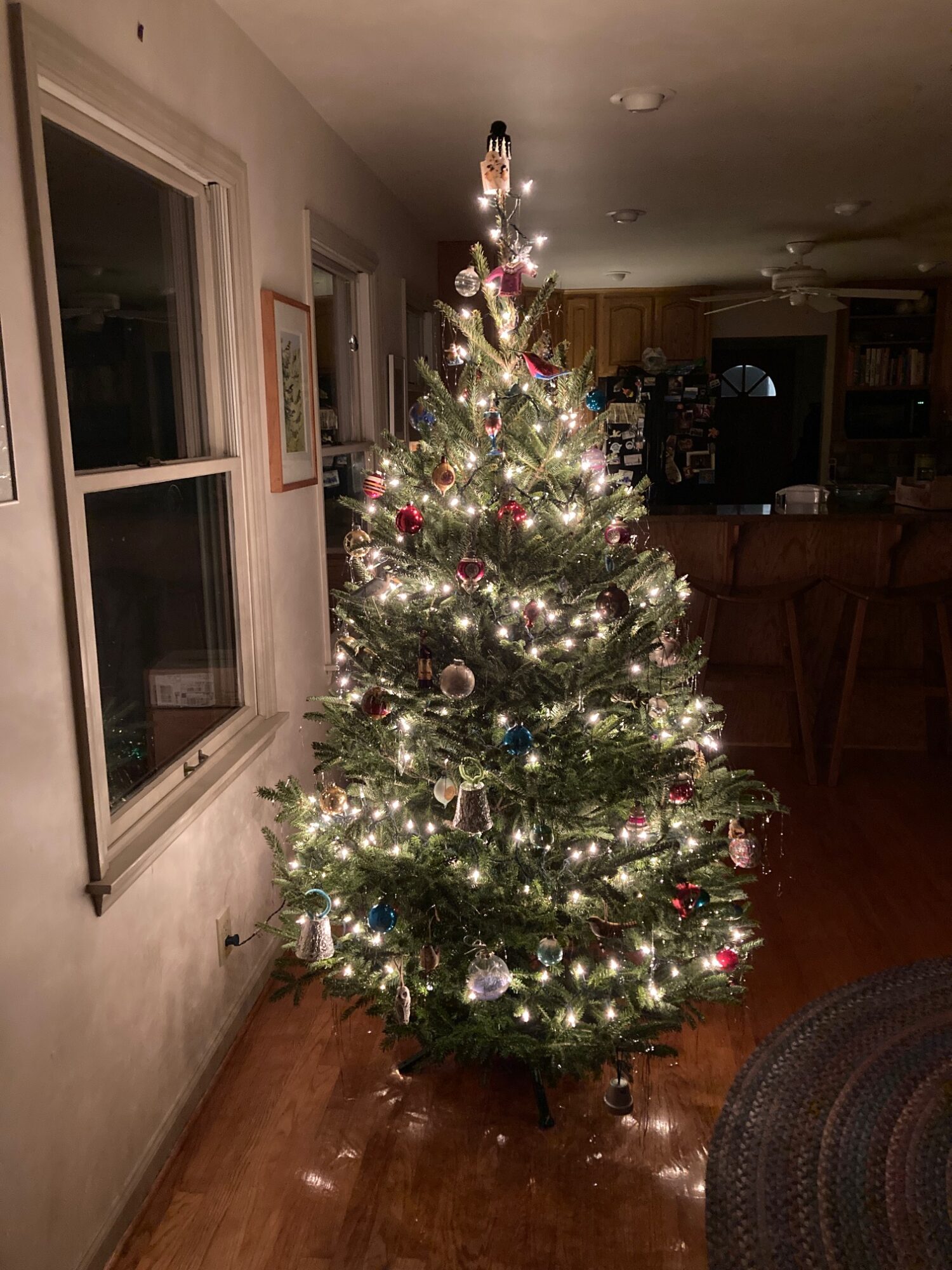Last week, I began a series of posts addressing the question “What matters?” My point in doing so was to focus on the simple fact that we have finite amounts of time, of energy (physical and emotional), and of the other personal resources we allocate to various parts of our lives on a daily basis. To be honest, I don’t know exactly where this conversation is going. I only know that it interested me when I started thinking about it, and I figured it might take the blog in an interesting direction.
I don’t expect to come up with a lot of answers in these posts. In a way, the questions are the more important element of the conversation. Ultimately whatever answers I might find, whatever choices I might make, will be idiosyncratic, tailored entirely to my life, my priorities, my needs and wants and obligations. Again, the questions and thought process are likely to be far more informative.
Today, I want to talk about time. I mentioned in a couple of paragraphs last Monday that for much of 2022 I had failed to make time for two pursuits that I care about a great deal. And I glibly stated that I wanted to make more of an effort to play music and take photos in this new year. Of course, it’s not that easy. Not by a long shot. I want to make clear up front that I am not complaining about any of what I’m about to discuss. I love my life. I know how fortunate I am. But time issues are not easy.
To state the obvious, time is finite. Time is immutable. Some of us may have more money than others. Some of us may have more energy than others. But we all are allotted the same amount of time each day, week, month, year. We can’t buy more. We can’t hoard it for a “rainy day.”
I write about time management a fair amount in my Professional Wednesday posts. But work time is only one variable in the equation, and, I would argue, far from the most important. I can pledge to myself that I will find more time for the things I enjoy doing, but where is that time going to come from? It’s all about choices, about deciding “what matters.”
Look at most people’s daily habits and it becomes clear that we spend the vast majority of our time doing two things: sleeping and working. Nancy and I tend to be early-to-bed, early-to-rise people; neither of us does well on too little sleep. We’re generally in bed by 10:30 or so each night, and we’re both up by 6:00 or 6:15 each morning. I devote the first two hours of my day to exercise — a workout and then a lengthy walk. I work for much of the day, only winding down when Nancy gets home from her job in the early evening. She generally has a bit more work to do after she gets home, and I take that time to tie up my loose ends from my work day. We have dinner, clean up, and then will generally watch an episode or two of something on TV before retiring. Rinse and repeat . . . .
The point I’m trying to make is this: There isn’t a whole lot of room in there for squeezing in the things I want to add to my day. I do take small breaks from my writing periodically. I could — and should — use those breaks to play a song or two on my guitar. Slotting in my music that way would likely get me to play a lot more over the course of a year. And I can (and sometimes do) take my camera with me on my morning walks. The places where I walk are quite beautiful. I could easily take photos then. These are not perfect solutions, but they help.
What about that TV time at the end of the day? Couldn’t I play music then?
Yes, I suppose watching television may not be the best use of my limited time. Except the hour or two we spend on the couch isn’t necessarily about the shows themselves. It’s about sitting with Nancy, unwinding together, sharing the experience, talking about the shows, the characters, the plot twists. We don’t get a lot of time together, and time with my sweetie matters to me. So watching TV together is a choice.
Weekends offer time for doing stuff as well. We always have errands on Saturdays and Sundays. We do our laundry. Nancy gardens. I write blog posts like this one. But yes, I can play music and maybe take photos on the weekends.
But I’ve yet to address the unexpected, or the things that we don’t schedule but have to do or want to do. Seeing friends, talking to our kids, visiting with our kids, going to doctor appointments, dealing with house issues, paying bills, shopping for groceries, going to a concert or play or movie, attending university functions, which has become a HUGE part of our lives since Nancy became acting president of the school. And I haven’t even mentioned travel — for work, which both of us have to do from time to time, and for pleasure, which we LOVE to do, but which can be quite disruptive to our routines.
What matters? What can we give up or shorten or stretch? I blithely give advice to new writers about finding time for writing in their lives. “Just an hour a day, enough to write five hundred or a thousand words, can put you on the path to writing professionally.” It’s true. But where the hell would I find a spare hour? I have no idea. And I don’t have small kids in the house. I don’t have pets. I don’t have a job other than writing and editing.
These choices are hard. They demand sacrifice. All of us are spread thin. None of us has tons of free time. I don’t want to sleep less, or exercise less. I don’t want to give up time with my spouse. I want more time with my daughters, not less. I don’t want to cut back on work. I enjoy my job and — oh, by the way — I enjoy getting paid. I want to travel and see friends and family; I don’t want to be a hermit or a shut-in. But I also want to play music, take pictures, birdwatch (I always take my binoculars on my morning walks, so I do birdwatch each day). These things are good for my mental and physical health as well.
What matters? The hard truth is that all of it does. And I have no doubt that when you look at your life, and try to figure out how you might fit in something new, be it writing or exercise or time for a new friend or romantic partner, you encounter the same problem. Each choice involves some sort of sacrifice.
I don’t know if this post has been helpful or interesting for any of you, but I find these issues fascinating. In any case, thanks for reading along. More to come in the weeks ahead
For now, have a great week.









 What matters to me? Professionally, for this coming year, a few things. I have a series debuting in February. I want to promote the hell out of it. I want to feel at the end of the release windows — the weeks immediately preceding and following the releases of the three books — that I have done all I could to make the series successful. I also have an old series that I want to re-release. I’ve been talking about doing this for several years now, and each year I have found other projects to take up my time and energy. But this series, Winds of the Forelands, is one about which I am passionate. This is the year I bring it out again. It matters to me. And I want to start something new, a series that will take me in a new direction, I have resisted starting it for a couple of years, I believe because I am intimidated by the magnitude of what I’m taking on. It’s time to get over my hesitation.
What matters to me? Professionally, for this coming year, a few things. I have a series debuting in February. I want to promote the hell out of it. I want to feel at the end of the release windows — the weeks immediately preceding and following the releases of the three books — that I have done all I could to make the series successful. I also have an old series that I want to re-release. I’ve been talking about doing this for several years now, and each year I have found other projects to take up my time and energy. But this series, Winds of the Forelands, is one about which I am passionate. This is the year I bring it out again. It matters to me. And I want to start something new, a series that will take me in a new direction, I have resisted starting it for a couple of years, I believe because I am intimidated by the magnitude of what I’m taking on. It’s time to get over my hesitation. What about you? I’m not merely asking what you wish to accomplish, though obviously that’s part of the equation. I’m asking as well what you care about. Sure, maybe you want to be published — or at least contracted — by year’s end. That’s a laudable goal. But what project will get you there? What story is burning brightest inside you? What work will bring you joy? What project is most likely to tap into your greatest creative passion? That ought to be part of the equation as well.
What about you? I’m not merely asking what you wish to accomplish, though obviously that’s part of the equation. I’m asking as well what you care about. Sure, maybe you want to be published — or at least contracted — by year’s end. That’s a laudable goal. But what project will get you there? What story is burning brightest inside you? What work will bring you joy? What project is most likely to tap into your greatest creative passion? That ought to be part of the equation as well.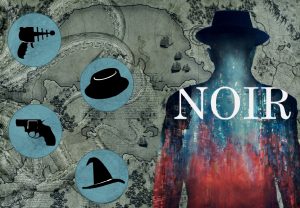 So far, we have received some very good stories. We have also received far, far more that won’t make the first cut. And so I thought I would go over again, briefly, the things that can make or break a story submission, at least for this editor.
So far, we have received some very good stories. We have also received far, far more that won’t make the first cut. And so I thought I would go over again, briefly, the things that can make or break a story submission, at least for this editor.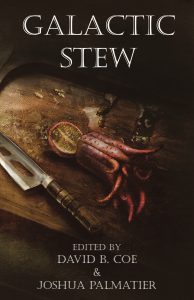 Will I reject a story simply because it is single-spaced instead of double-spaced? No, I’m not quite that mean. But when reading a story, knowing I have literally dozens more waiting in the queue, I will only tolerate so many flaws before I reject it. Remember, I have 500 stories to choose from. I can and will find what I’m looking for. No story is ever perfect, so ask yourself, do you want to expend one of your flaws on formatting? Or do you want to present your story correctly so that I can judge it on its artistic merits? The answer seems self-evident to me.
Will I reject a story simply because it is single-spaced instead of double-spaced? No, I’m not quite that mean. But when reading a story, knowing I have literally dozens more waiting in the queue, I will only tolerate so many flaws before I reject it. Remember, I have 500 stories to choose from. I can and will find what I’m looking for. No story is ever perfect, so ask yourself, do you want to expend one of your flaws on formatting? Or do you want to present your story correctly so that I can judge it on its artistic merits? The answer seems self-evident to me.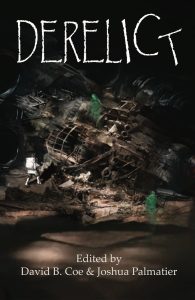 1) I abhor the cliché, but think outside the box. As
1) I abhor the cliché, but think outside the box. As 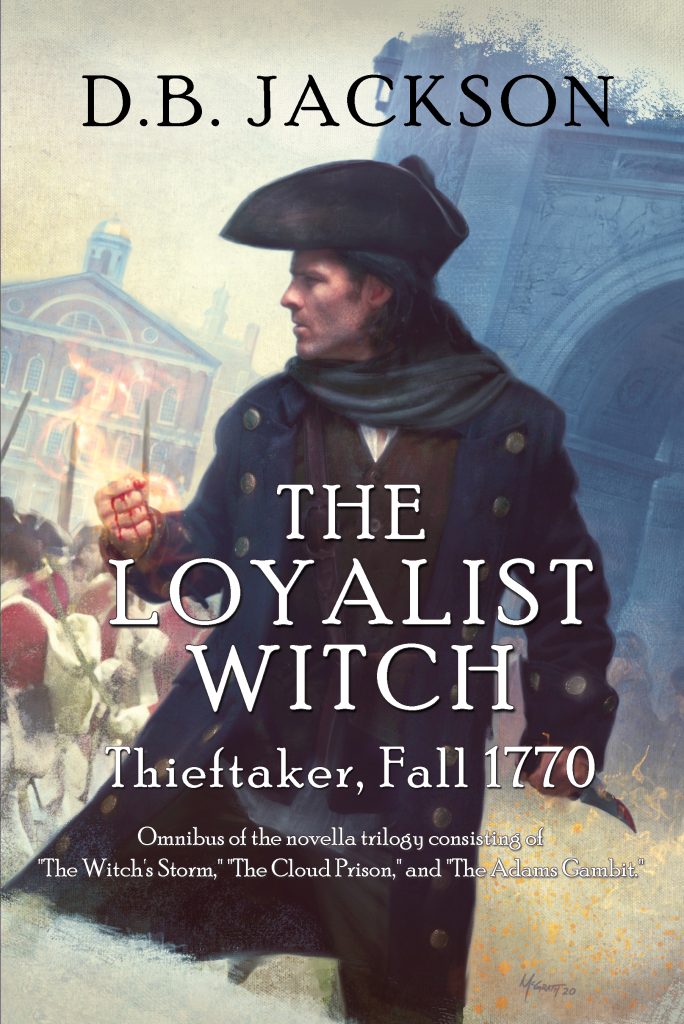 What are you giving for the holidays?
What are you giving for the holidays?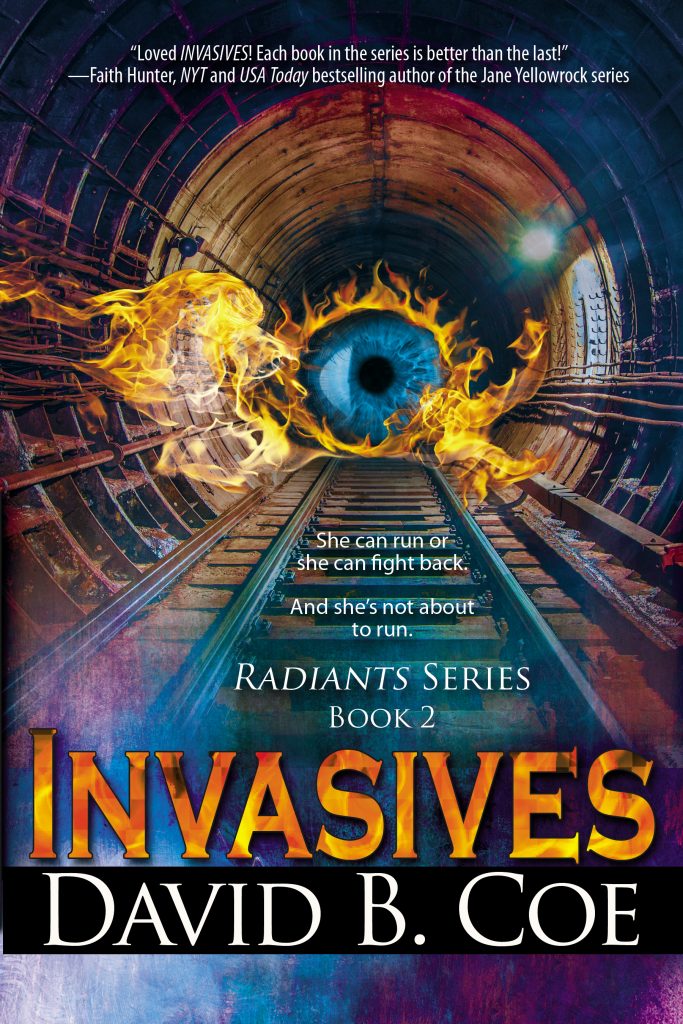 May I suggest a book, or several books?
May I suggest a book, or several books?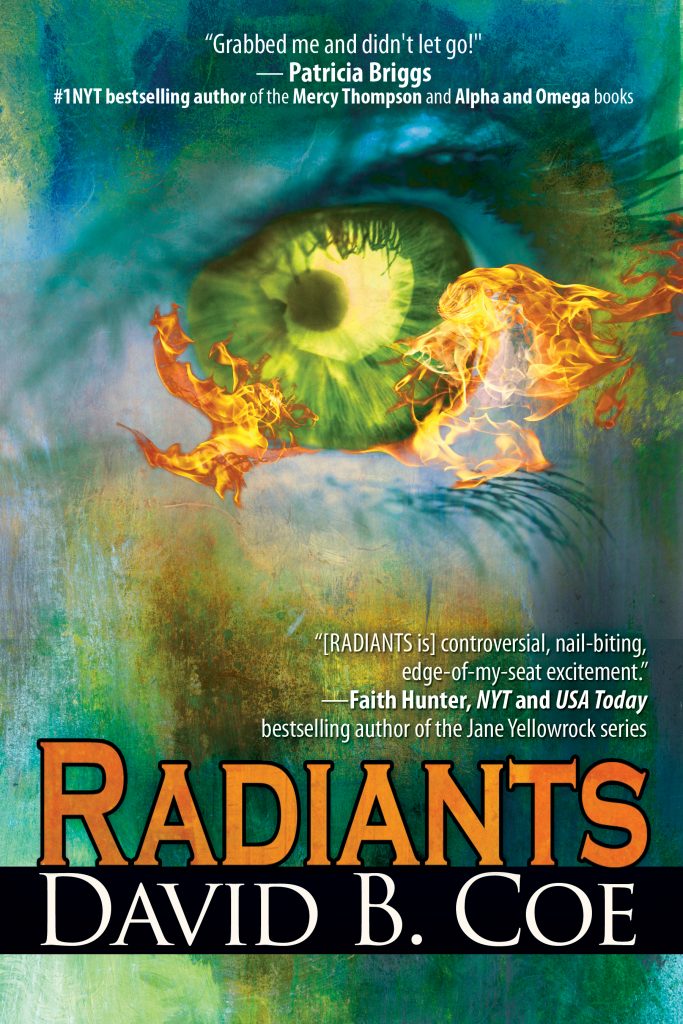 Yes, I know, this probably seems a little crass. But here’s the thing: Creators like me make our livings off the sale of our creations. It really is that simple. If our books (or music or art or whatever) don’t sell, we don’t earn.
Yes, I know, this probably seems a little crass. But here’s the thing: Creators like me make our livings off the sale of our creations. It really is that simple. If our books (or music or art or whatever) don’t sell, we don’t earn.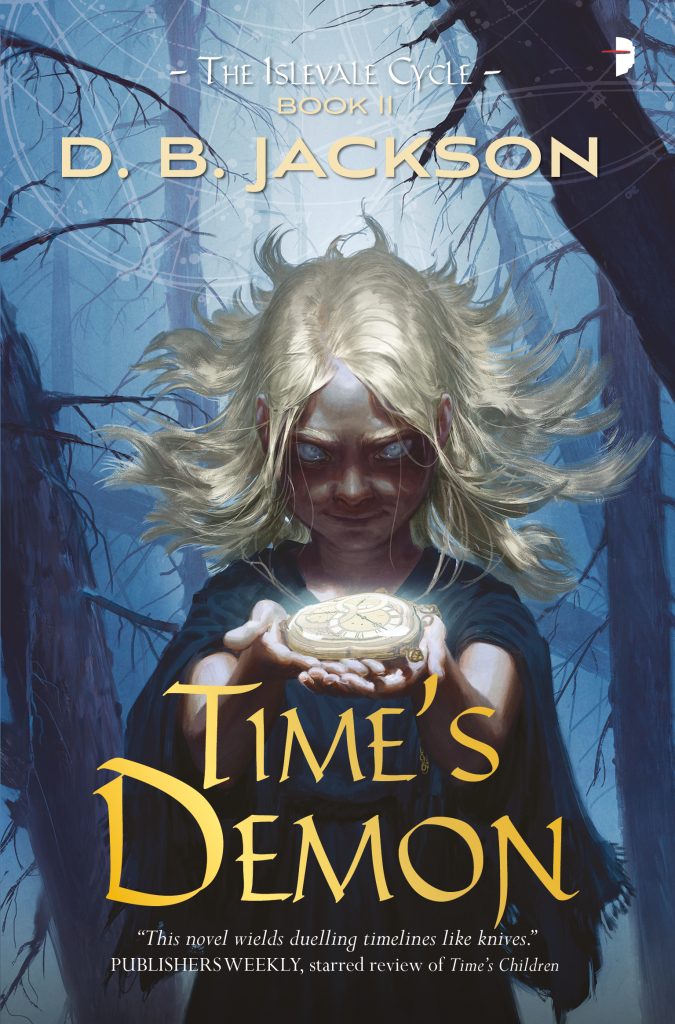 Now, many of you are probably saying at this point that you have already bought my books and, I hope, read and enjoyed them. That’s wonderful. Thank you. Truly.
Now, many of you are probably saying at this point that you have already bought my books and, I hope, read and enjoyed them. That’s wonderful. Thank you. Truly. Two years ago at this time, I was revising Radiants and starting to organize my plans for Invasives, the second book in the sequence. I had never written a supernatural thriller before, but I had the idea and wanted to give it a go.
Two years ago at this time, I was revising Radiants and starting to organize my plans for Invasives, the second book in the sequence. I had never written a supernatural thriller before, but I had the idea and wanted to give it a go. Around that same time, I was also reading submissions for the Temporally Deactivated anthology, my first co-editing venture. Last year I opened my freelance editing business, and a year ago at this time, I was editing a manuscript for a client.
Around that same time, I was also reading submissions for the Temporally Deactivated anthology, my first co-editing venture. Last year I opened my freelance editing business, and a year ago at this time, I was editing a manuscript for a client.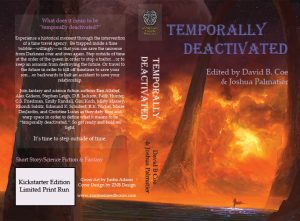 Last week, I wrote about planning out my professional activities for the coming year. This week, I want to discuss a different element of professional planning. My point in starting off with a list of those projects from past years is that just about every year, I try to take on a new challenge, something I’ve never attempted before. I didn’t start off doing this consciously — I didn’t say to myself, “I’m going to start doing something new each year, just to shake things up.” It just sort of happened.
Last week, I wrote about planning out my professional activities for the coming year. This week, I want to discuss a different element of professional planning. My point in starting off with a list of those projects from past years is that just about every year, I try to take on a new challenge, something I’ve never attempted before. I didn’t start off doing this consciously — I didn’t say to myself, “I’m going to start doing something new each year, just to shake things up.” It just sort of happened. As it turns out, these new challenges have brought me to a place where I can say, in all candor, that I have never been happier in my work than I am now. Each time I try something new, I reinvigorate myself as a creator. I force myself out of the tried-and-true, the comfortable. With each of the new projects I mentioned above I had a moment of doubt. I wondered if I was capable of accomplishing what I set out to do. Now, I’m a pretty confident guy when it comes to my writing chops and my ability to help others improve their writing, so those doubts didn’t last long. But they were there each time.
As it turns out, these new challenges have brought me to a place where I can say, in all candor, that I have never been happier in my work than I am now. Each time I try something new, I reinvigorate myself as a creator. I force myself out of the tried-and-true, the comfortable. With each of the new projects I mentioned above I had a moment of doubt. I wondered if I was capable of accomplishing what I set out to do. Now, I’m a pretty confident guy when it comes to my writing chops and my ability to help others improve their writing, so those doubts didn’t last long. But they were there each time. But those new challenges did more than that. They kept my professional routine fresh. I am a creature of habit. I try to write/edit/work every day, so in a general sense, my work days and work weeks don’t change all that much. By varying the content of my job — by writing new kinds of stories and expanding my professional portfolio to include editing as well as writing — I made the routine feel new and shiny and exciting. And at the same time, these new projects made it possible to return to some old favorites, notably the Thieftaker series, with renewed enthusiasm.
But those new challenges did more than that. They kept my professional routine fresh. I am a creature of habit. I try to write/edit/work every day, so in a general sense, my work days and work weeks don’t change all that much. By varying the content of my job — by writing new kinds of stories and expanding my professional portfolio to include editing as well as writing — I made the routine feel new and shiny and exciting. And at the same time, these new projects made it possible to return to some old favorites, notably the Thieftaker series, with renewed enthusiasm. This post probably isn’t about what you think it is.
This post probably isn’t about what you think it is.